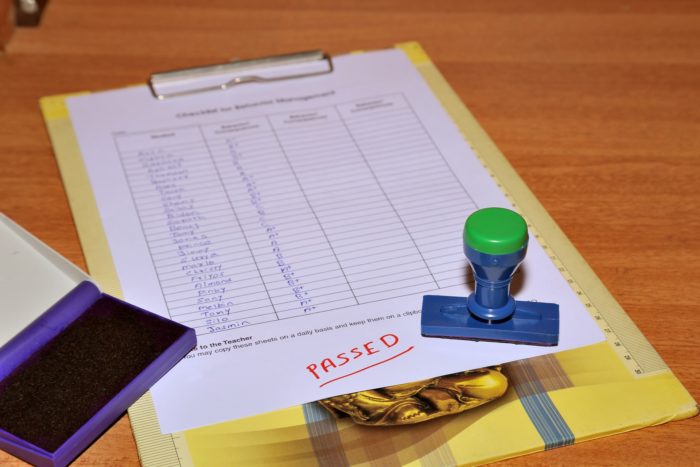When you’ve just finished college and decided on your career path the next step is the resume. It can feel like it’s hard to fill that page. Quite often you only have a small amount of job experience and it’s hard to imagine that the people down that the bank you want to join have any interest in when you served ice cream for a couple of weeks one summer.
Often, people despair as a result. They get all discouraged, don’t know what to write down and in the end don’t end up sending anything to anybody. Of course, that’s the way to not get any job offer, as you’ve got to knock on the gate before the gate keepers know about you.
If that’s you, then have I got news for you. You can fill your resume, even if you don’t have job experience. And I’m going to tell you how.
Find out what skills the place you want to work at needs
The first thing to realize is that a resume isn’t a laundry list of all you’ve done. If you approach it that way, chances are pretty good that they won’t offer you a job. Instead, a resume is a marketing tool. It’s where you show off what you can do and why they should hire you.
The first step to that end is to figure out the skills that they are looking for and how you can show that you’ve got those skills through your work history (however limited) and your time spent in school.
For example, if they need you to be proactive, match it up with how you led teams, projects and took charge on other occasions. If they need creativity, consider art projects you took part in, or anywhere else where you did things in a creative and different manner.
These are the skills that you’ll want to put high up on your resume.
Find a good template
You might be tempted to do something creative with your resume to catch the HR people’s eye. Quash that thought right now. You see, an HR manager isn’t going to read every word and every idea. Instead, they’re going to scan your resume and decide within a few seconds if they think it’s any good.
For that reason, you want to make sure that they can find what they’re looking for. It gets even worse. Sometimes a person won’t even see your CV. Instead, it will only be looked at by a computer. And computers are easily confused by new and swanky. And you know what computers do when they don’t understand something? That’s right, they reject it.
The best way to do that is to make sure that doesn’t happen is to use a more common template that they’re familiar with.
Put in your information
Who you are, how they can reach you and other details that are vital for them to know go at the top. Don’t forget these, for if they can’t find them then it doesn’t know how good your resume is, they won’t be able to get a hold of you (and they’ll think your resume isn’t very good if that’s the case).
Don’t overdo the information. They don’t need to know how old you are. You should only include a picture if it’s a very professional looking one. And if you include your house address and the times you’ll be there, you’re giving an awful lot of information to any potential thieves that might get their hold of your documentation.
Put the strongest stuff at the top
Some people think that their CV should be chronological. They’re wrong. Nobody cares what job you did first. They care about what job you did that is the most relevant for the position that they’ve got. For that reason, put that at the top.
Note that as a student, you might not have that much work experience. In that case, talk about courses that are relevant. Make sure you outline why they are relevant as well. Other people might not be able to infer from the course’s title what you learned there. So get into details, particularly details that are relevant to the place you’re applying.
The other stuff you’ve done goes further down. If you’ve already got a full page and another job that doesn’t actually matter for where you’re applying, don’t be afraid to leave it off.
Don’t neglect relevant extracurricular activities
If you think they’ll help your case, put them in. So yes to an extracurricular computer club if you’re applying to work in IT. But I’d keep the Friday night binge sessions off of your resume if you’re trying to land any kind of job with responsibility.
In fact, that word ‘relevant’ needs to be explored for each and every aspect of your resume. Only put on it what matters. Stay away from filler, particularly if it doesn’t make you look very professional. People will pick up on that very, very quickly. Don’t know what is relevant, then ask somebody. Ask your university counselor, or get a custom writing outfit involved. They’ve got a lot of experience with that kind of thing.
Check, check and check again
And finally, make sure that you check every word and every sentence. Dot every ‘i’ and cross every ‘t’. Check alignment, so that nothing jumps out or look weird. Then do it again. Then ask your roommate to do it for you.
You’ve got to be careful, for if you make any mistakes then there is a very good likelihood that the person at the end will use that as the excuse to throw your resume away. After all, they’re probably going through hundreds for the position you’re applying to, so they’ll take any reason they can to whittle down that pile.
Embrace failure
Particularly when you’re just applying, remember the numbers game. You don’t need every person to give you a job. You need just one person to give you a job. For that matter, don’t stress the rejections. Instead, work towards getting that final invitation to interview.
For once you’ve got a job offer all those rejections no longer matter. In fact, your perspective of all of them will change. They will go from being failures to being stepping stones to your success. So why not see them that way right from the beginning? Embrace the rejections. Sooner or later they’ll lead you to the success you’re looking for.






Comment here